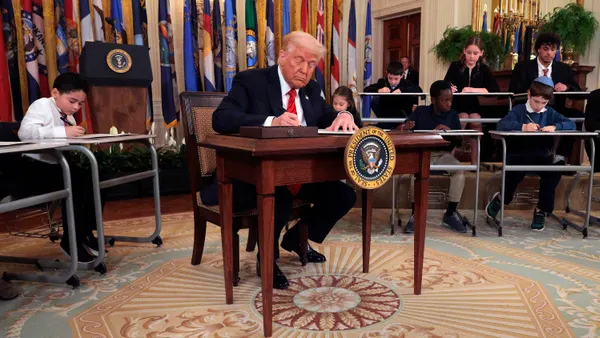Dive Brief:
- Principals and school administrators are still trying to figure out how to contend with sexting incidents in K-12 schools — though it’s been an issue for years, principals are reporting that ubiquitous smartphone usage, new policy shifts, and an increase in the use of social media platforms like Snapchat have expanded the problem.
- Education Week reported that part of the difficulty is that the investigation of a potential sexting incident could put principals and administrators in possession of illegal material, and students may also need counseling if private images are released — plus principals can be obligated to report such incidents to adhere to Title IX.
- Principals at a panel discussion on the subject urged school leaders to immediately notify law enforcement in the event of a sexting incident, and they also stressed that prevention programs, including classes regarding the importance of “digital citizenship,” might help students become more informed of the dangers.
Dive Insight:
Principals and school leaders in many districts agree that a proactive approach to digital literacy for students could be beneficial in preventing these problems in the first place. If students are informed about the potential disciplinary and even legal consequences that could arise from sexting or from publicizing a private image, it may stop some from engaging in the practice. Additionally, some schools and districts are continuing to transition toward offering more Wi-Fi access for students both at school and outside of it. If the school is offering the Wi-Fi it may also have an increased ability to block inappropriate sites or material.
However, considering the rise in sexting incidents and the increased pressure on educators to address it, it is all the more important that teachers be trained in the use of tech tools and techniques for the classroom. Devices like Chromebooks are increasingly becoming ubiquitous in classes throughout the country, but a number of educators expressed doubt in their school’s ability to help them utilize the tools to the best of their ability in a recent survey. Teachers must also be trained on how to approach sensitive issues like sexting, and schools should try to retain digitally-literate staff familiar with the social media platforms in question. This way, administrators can understand the potential pitfalls more quickly, and students will be able to feel like there are individuals on staff who can speak to them fluently about platforms and smartphone usage.











